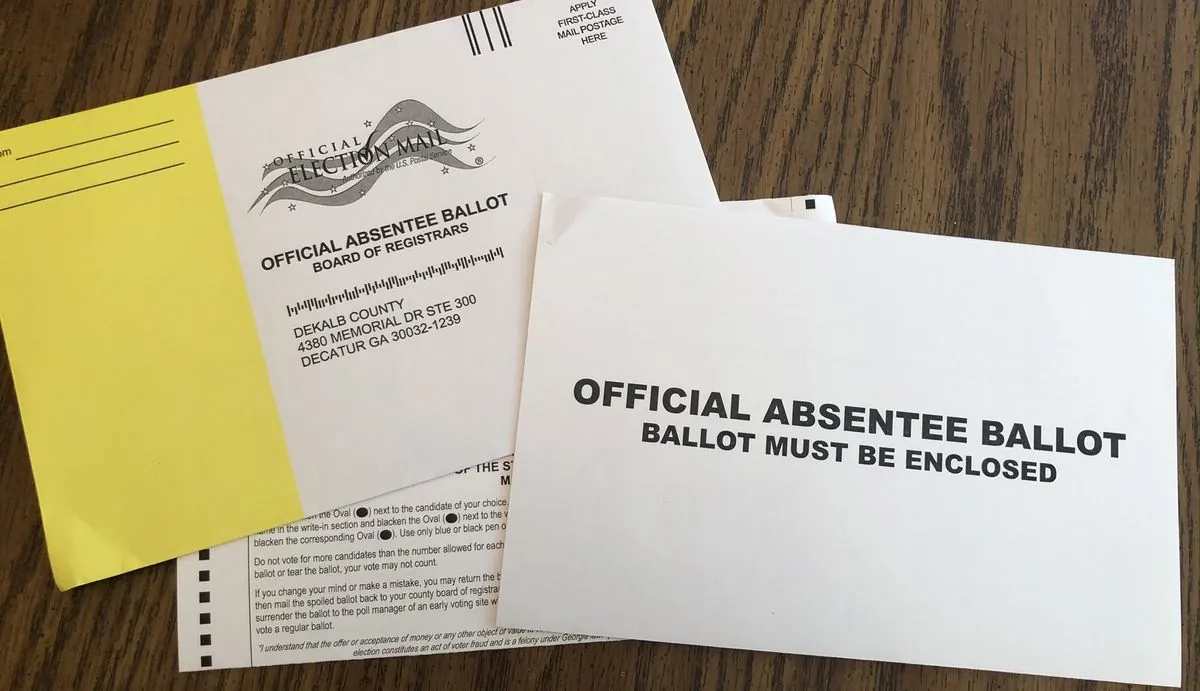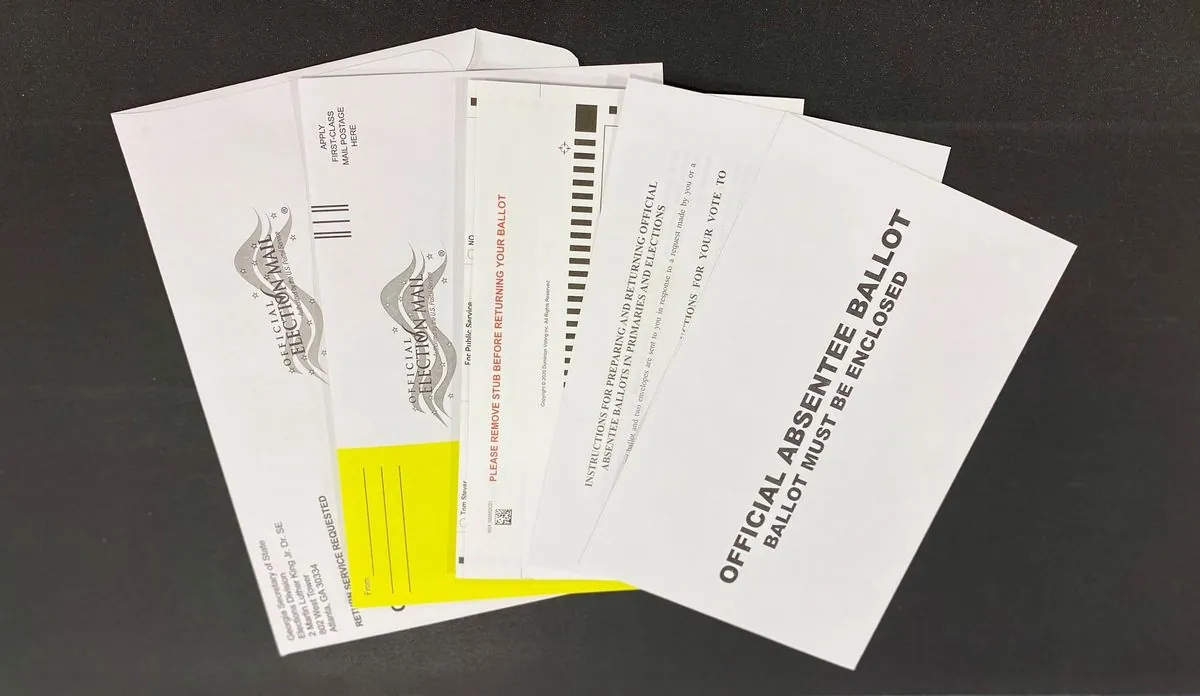Alabama Kicks Off Presidential Election with Absentee Ballot Mailing
Alabama begins mailing absentee ballots for the 2024 presidential election, marking the start of voting. Election officials prepare amid political uncertainty and new voting restrictions across states.

Alabama has initiated the mailing of absentee ballots for the 2024 presidential election, signaling the commencement of voting for the November 5 contest. This event occurs 55 days before Election Day, highlighting the rapid approach of this crucial democratic process.
Sharon Long, deputy clerk in the Jefferson County circuit clerk's office, confirmed their readiness, stating, "We're ready to go." The office received ballots on September 10 and began mailing them to applicants, including overseas and military voters, on September 11. Long reported over 2,000 absentee ballot applications, indicating "heavy interest" in the upcoming election.

It's worth noting that the U.S. has no national election commission, with elections managed at state and local levels. This decentralized system contributes to varying voting procedures across the country. For instance, Alabama does not offer traditional early voting, limiting voting options to absentee ballots or in-person voting on Election Day.
Alabama's absentee voting criteria are specific, allowing ballots only for those who are ill, traveling, incarcerated, or working shifts conflicting with polling hours. This contrasts with some states that use all-mail voting systems, where all registered voters receive ballots by mail.
The state has also implemented new restrictions on voter assistance, making it illegal to distribute prefilled absentee ballot applications or return another person's application. Wes Allen, Alabama Secretary of State, asserts that this provides "Alabama voters with strong protection against activists who profit from the absentee elections process." However, critics argue that these measures may hinder civic engagement.
These developments occur against a backdrop of evolving election laws and practices across the United States. Since the Civil War, absentee voting has been available in the U.S., with its usage reaching unprecedented levels during the 2020 COVID-19 pandemic. The Help America Vote Act of 2002 and the National Voter Registration Act of 1993 have aimed to improve voting systems and facilitate voter registration.
As the election approaches, uncertainties persist. Former President Donald Trump's repeated claims about election integrity have sowed distrust among some voters. Additionally, several states have passed more restrictive voting laws since 2020.
Justin Roebuck, clerk in Ottawa County, Michigan, expressed confidence in their preparedness: "We're feeling, 'Game on.' We're ready to do this. We're ready to go." This sentiment echoes across many election offices as they navigate the complex landscape of the 2024 presidential election.
The upcoming election will utilize the Electoral College system, a practice established in 1787, rather than a direct popular vote. As November 5 draws near, election officials nationwide continue their efforts to ensure a smooth and secure voting process, upholding the fundamental principles of American democracy.


































